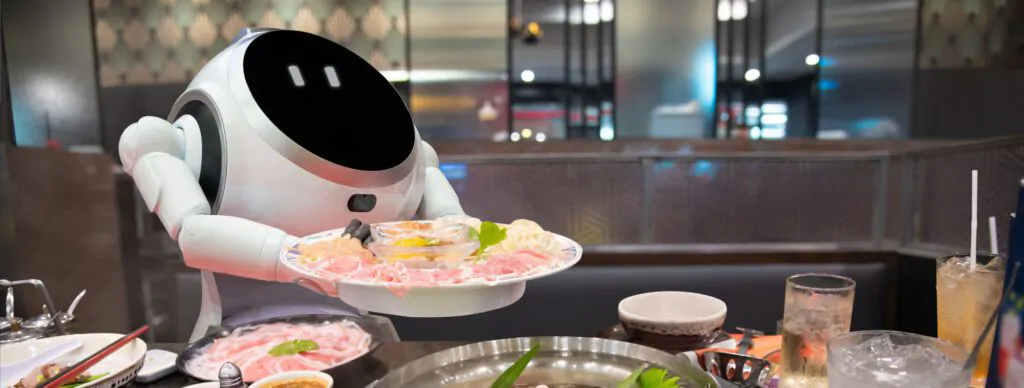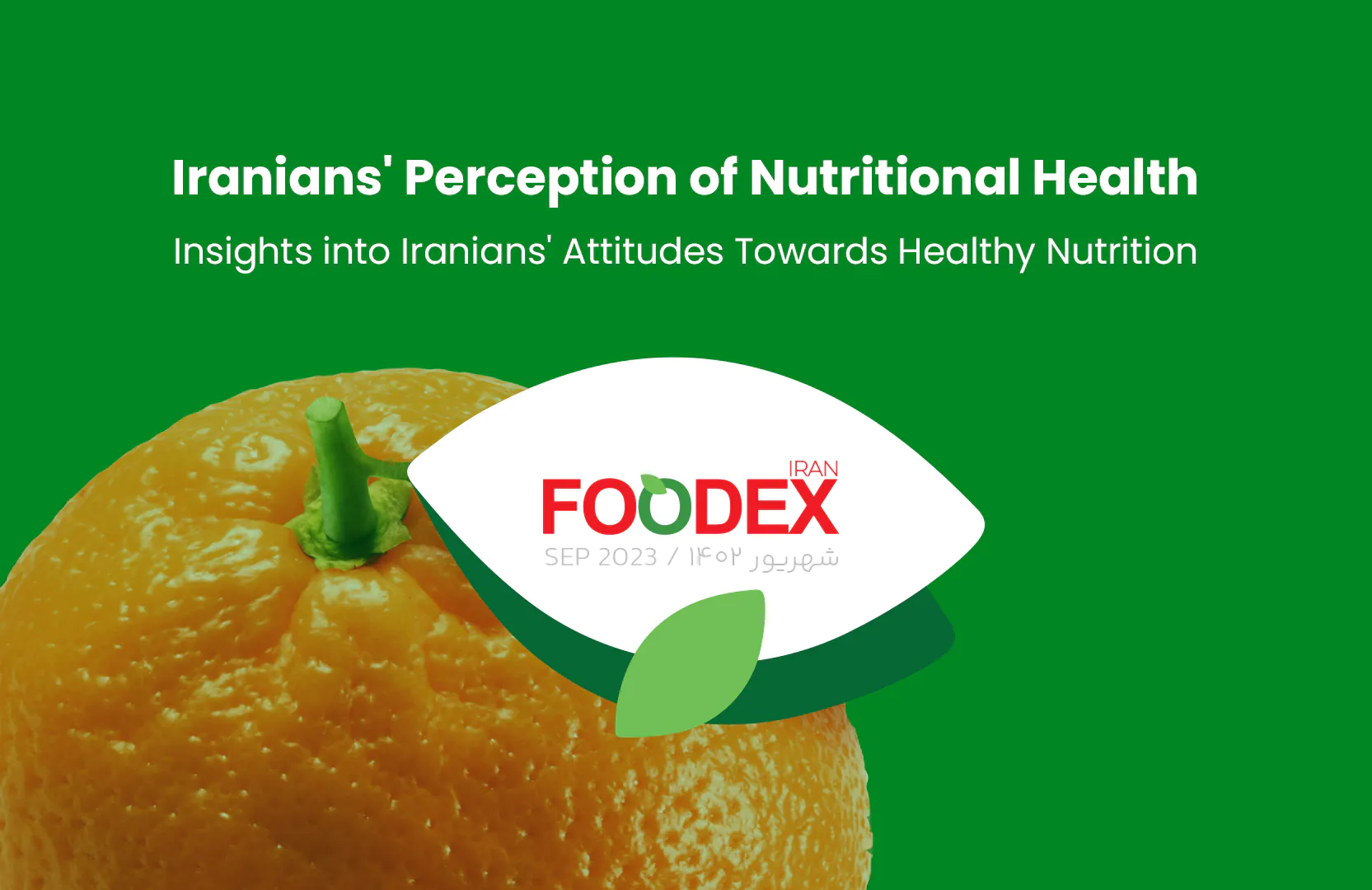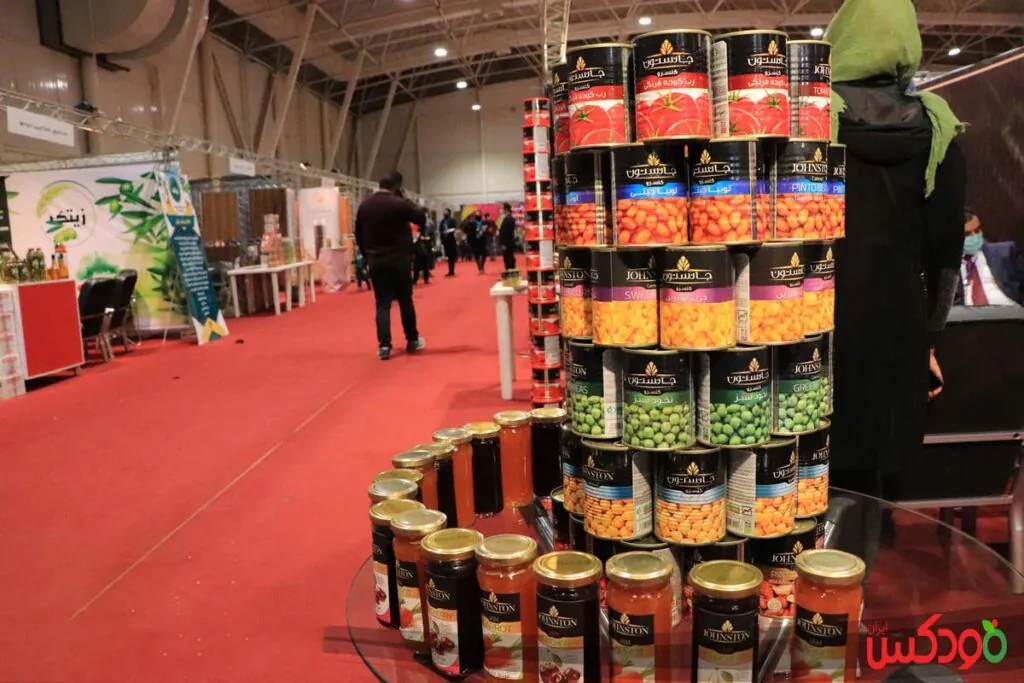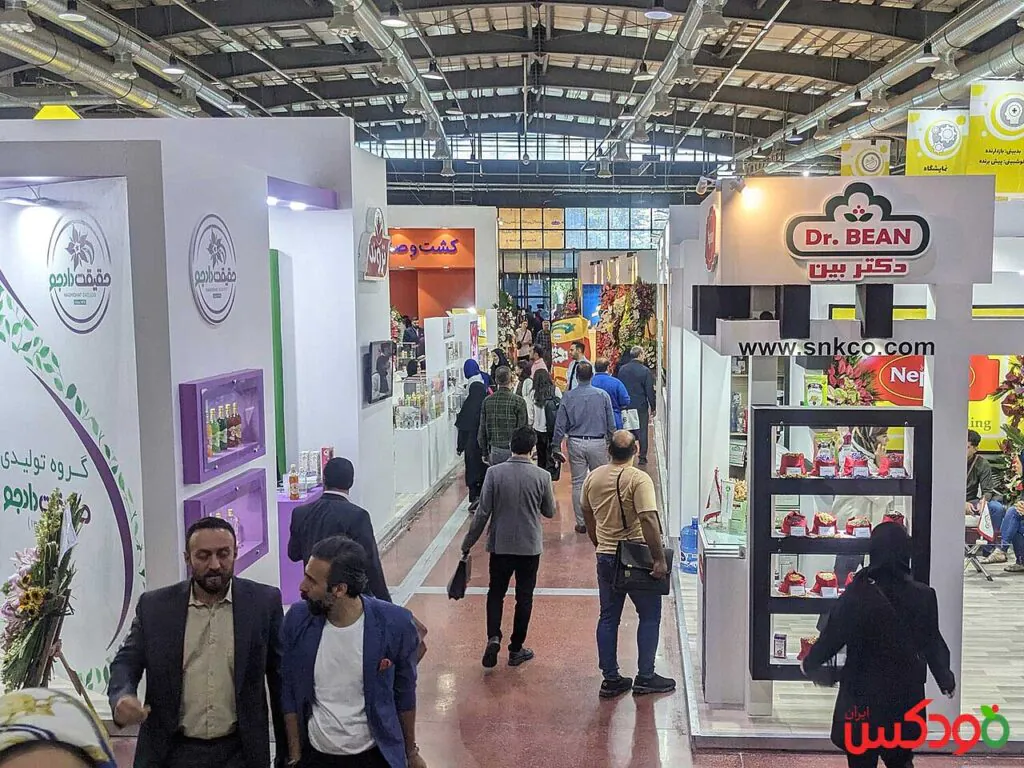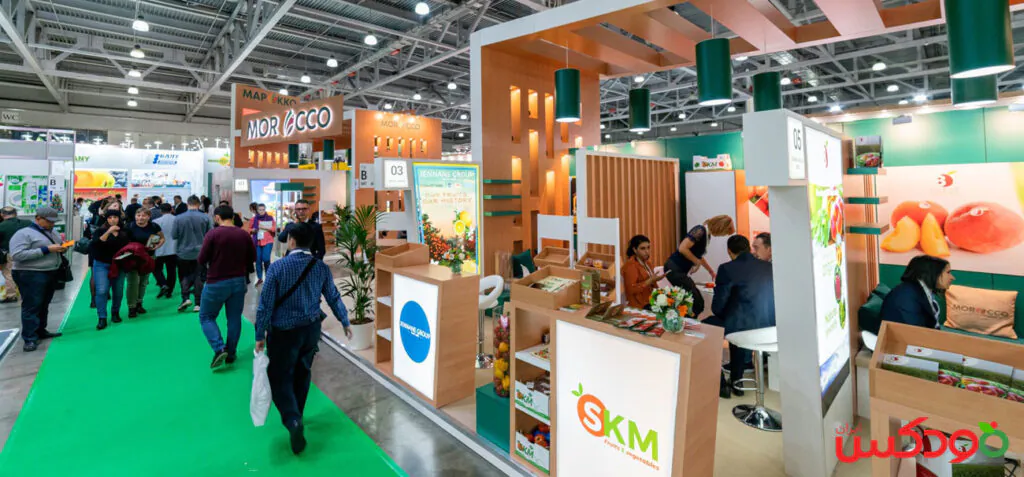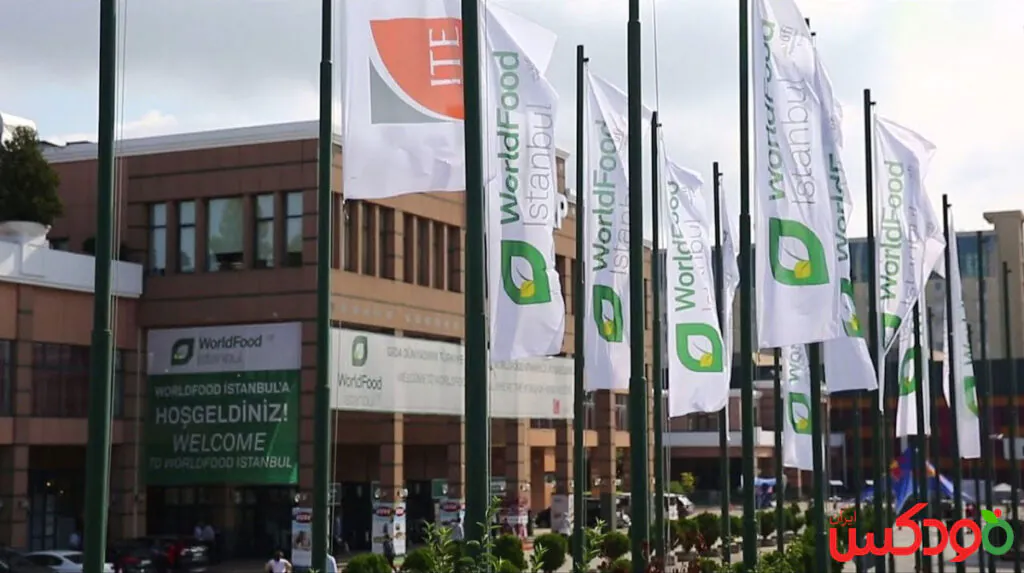Artificial intelligence (AI) has dramatically transformed numerous industries in recent years. The food industry has been no exception, as AI has left its mark on food and beverages. Today, many organizations have realized that increasing productivity, reducing food waste, and improving supply chain disruptions as some of benefits known as benefits of AI in food industry. Consequently, many players in the food industry strive to capitalize on impacts of ai in food industry and its subfields as soon as possible.
But what exactly is AI’s impact on the food industry? What are its applications in this sector? Join us at FoodexIran as we explore this topic further to answer these questions and gain a better understanding of the advantages AI offers the food industry.
What is Artificial Intelligence (AI)?
Artificial Intelligence, or AI, is the simulation of human intelligence in machines programmed to think and act like humans. This term also applies to machines with human-like cognitive abilities, such as learning and problem-solving.
The primary aspects of AI include:
- The ability to think like humans
- Logical reasoning
- Performing human-like actions
- Rationally behaving
The key feature of AI that has garnered significant attention from scientists in recent years is its ability to rationalize and take the best course of action to achieve a specific goal.
Impact Of AI In Food Industry
The advent of technology and machines capable of thinking as precisely as humans has made life more convenient for us in every aspect, including the food industry. The food sector has been impacted by these technologies and AI, benefiting from their advantages. Here are some impacts of :AI in food industry
Improving Food Delivery Processes
Food delivery is one of the most crucial aspects of artificial intelligence in food industry. Given its importance, it’s unsurprising that the use of AI in various food delivery applications is one of the most significant impacts of AI in food industry. Initially, AI started its work through marketing and advertising products, analyzing individual customer behavior on websites to understand their preferences and provide targeted recommendations for food orders or restaurant suggestions. AI also automates necessary actions for placing orders, delivery, and billing processes, streamlining these procedures.
Automating Food Processing
Human labor is involved in stages of food processing, including preparation and packaging. Additionally, food processing is a complex and time-consuming process. Even after processing, extensive quality tests must be performed before the food is ready for distribution. Moreover, ensuring the hygiene of personnel involved in food processing is a significant challenge. This is where the need for AI implementation becomes crucial. AI can facilitate food processing procedures, reduce processing time, increase industry revenue, and enhance customer experience, potentially revolutionizing the food industry.
Ensuring Safe Food Transportation
Another crucial application of AI in the food industry is maintaining the conditions necessary for keeping food safe during transportation. Each food item requires specific temperature and humidity levels to prevent spoilage and must be stored and transported under suitable conditions. Utilizing AI combined with the Internet of Things (IoT), advancements can help precisely control the requirements for safe food transportation, ensuring that food products are delivered in the highest possible quality.
Managing Food Supply Chains
Unlike when supply chains involved only a few processes and were controlled by a single person, modern supply chains have become more extensive, encompassing numerous procedures. This complexity leads to various challenges, as supply chains require constant evaluation of all activities at each stage, coordination, and information delivery to the appropriate individuals. Maintaining coordination and precise, continuous performance monitoring in large supply chains becomes even more challenging, and manual processes create numerous problems. This is where AI can work its magic by precisely monitoring processes and activities. When combined with IoT, each supply chain segment can operate optimally.
Eliminating the Need for Food Processing Equipment
The equipment used for food processing typically performs multiple tasks simultaneously. As a result, equipment breakdowns can disrupt the entire supply chain process. In such situations, AI can ensure that food items are processed under favorable conditions within the required timeframe. Additionally, AI can continuously monitor the condition of food processing equipment and initiate necessary repair actions when needed.
Benefits of AI in Food Industry
Have you ever considered the impact AI could have on your life and the food you consume?
Use of artificial intelligence in food industry provide significant advantages. Some of the most notable benefits include:
Developing New Food Recipes Based on Customer Preferences
Food producers must remain up-to-date and continuously introduce new products to maintain popularity and generate fresh revenue streams. To achieve this, they need to understand their customers’ preferences accurately. In the past, this was accomplished through surveys and adapting to emerging trends. However, with AI, food producers can predict their customers’ priorities more efficiently and develop new food products accordingly. Analyzing data, sales patterns, and preferred flavors can be quickly expected, enabling early investment in developing newer products tailored to customer tastes. Additionally, AI allows customers to purchase products that precisely match their preferences. This advancement not only aids in identifying the best flavors but also shortens and reduces the cost of the product development process, enabling companies to introduce new products to the market more quickly with less trial and error.
Precise Cleaning of Tools and Equipment
All equipment and machinery used in food production must be cleaned according to the strictest standards. Unfortunately, this process is highly time-consuming and costly. Innovative AI technologies have introduced transformations in this domain as well. For instance, the University of Nottingham has developed a device that uses fluorescent optical imaging and ultrasonic sensors to scan for residual food materials in machinery. Moreover, this device can save 20% to 40% of the water used for cleaning equipment and reduce cleaning time by half.
Hygienic Production Lines
Violating food safety can be costly for producers, resulting in substantial fines and damage to their reputations. AI significantly reduces the likelihood of such violations in various ways. The more aspects of the food production process are controlled and cleaned by robots, the lower the risk of product contamination by pathogens. Robots operate faster and more efficiently than humans and can be sterilized, greatly enhancing food safety. Furthermore, AI can be used to improve workforce hygiene. For example, facial recognition technologies can identify employees who have neglected hygiene practices, enabling companies to control workplace cleanliness more tightly.
Accelerating Food Sorting Processes
Food sorting is a laborious and time-consuming process that slows down production line workers and necessitates employing numerous staff members. This challenge becomes more acute when sorting products that do not meet the required standards for sale. With the assistance of AI, significant time and personnel can be saved in performing these vital activities. Lasers and cameras assess all products’ shape, color, and integrity, automatically separating defective and unusable items. Furthermore, if machine learning technology is employed alongside AI, such systems will continuously improve, reducing the waste of acceptable products.
AI and Food Waste
The United States Department of Agriculture has stated that food waste in America accounts for 30% to 40% of consumed food, which is unfortunately increasing. However, research indicates that AI can significantly reduce this amount and save billions of dollars in this area by 2030. This underscores that humans are currently unable to manage their resources effectively, and more intelligent methods can replace traditional practices, such as monoculture, synthetic chemical fertilizers, and excessive exploitation of arable land.
The information and data AI provides to farmers can help them make faster and better decisions.
Some other ways AI can reduce food waste include:
- AI helps identify microbes that can increase crop growth without using fertilizers.
- Farmers can benefit from AI by eliminating the need for field trials and significantly reducing the costs associated with such trials.
- If visual inspection technology is employed in agricultural product supply chains, the product inspection process will become much simpler and faster.
- Examining food through AI allows us to sell food to restaurants or individuals interested in purchasing it before it spoils and becomes waste.
One of the main challenges preventing these ideas is that a single company cannot achieve such goals alone; the entire industry must transform. A network of partners must collaborate to attain these objectives and create a significant impact globally.
Interestingly, this topic has garnered significant attention in recent years, and the number of people searching for “food waste” on Google has increased since 2011.
اگر دغدغه محیط زیست دارید، مقاله زباله های قابل بازیافت خانگی را حتما بخوانید.
The Future of AI and the Food Industry
Considering the impact of artificial intelligence in the food industry discussed so far, you have likely realized that investing in AI technology offers a multiplied return, and many investors have recognized this. For example, compared to humans, AI can more easily and quickly predict and identify many agricultural problems. Gaiama, an agricultural technology company based in Switzerland, raised over $3.2 million to invest in an AI project. They use drones with hyperspectral cameras to identify better water, fertilizer, pests, and crop performance changes. AI algorithms can then identify potential risks and inform farmers accordingly, suggesting more effective ways to utilize resources and arable land.
One of the most intriguing applications of machine learning in cultivating agricultural lands is the analysis of ground-level satellite data. The goal is to identify locations that offer the best crop yields and recommend them to governments and investors. We have emphasized the agricultural sector more because this part of the food industry still faces many challenges that must be addressed. In many regions, agriculture is still practiced using traditional and outdated methods, and reports indicate that 550 million liters of water are wasted annually for growing crops. It is hoped that AI can solve this problem in the future and significantly reduce this figure, potentially increasing food production by 60 times!
Lab 77 has previously developed intelligent robots capable of directly harvesting crops from fields, significantly reducing the arduous and labor-intensive tasks once performed by humans. Interestingly, these robots are equipped with machine learning technology and can accurately assess fruit ripeness, distinguish fruits from other crops, and move agricultural products more precisely. Imagine the potential impact if these robots were widely adopted!
Final Thoughts
Technology has provided numerous services to humanity, with AI being one of the best examples. Alongside machine learning, AI has the potential to create a revolution. In this article, we explored the impact of AI on the food industry. We examined the advantages of implementing this technology. How do you envision the future of this technology? We would love to hear your thoughts!
Frequently Asked Questions
What is Artificial Intelligence (AI)?
Artificial Intelligence, or AI, is the simulation of human intelligence in machines designed to mimic human thinking and actions.
What impact does AI have on the food industry?
AI impacts the food industry in various ways, including improving food delivery processes, enabling more effective supply chain management, ensuring safe food transportation, and more.
What is the most significant benefit of using AI in the food industry?
One of the most important benefits is reducing food waste. Since waste accumulation and food scarcity are currently among humanity’s crises, AI can provide invaluable assistance in addressing these issues.

